#wylan soc
Text
love when jesper asked wylan "shouldn't you be in university" my brother in christ shouldn't YOU be in university
#can you tell im screaming crying throwing up over the show yet#shadow and bone#shadow and bone netflix#shadow and bone season 2#shadow and bone spoilers#wylan van eck#wylan supremacy#wylan soc#jesper fahey#jesper x wylan#wesper#the crows#jesper soc#six of crows#six of crows duology#s&b s2#s&b netflix#s&b season 2#s&b show#sab netflix#sab season two#sab season 2#sab show
15K notes
·
View notes
Text

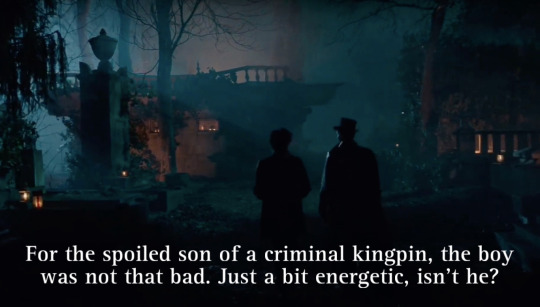
Wylan Van Eck + refusing to call people bad at music
#he’s a cutie#wylan my beloved#he’s like they are not bad just energetic:)#wylan six of crows#soc wylan#six of crows wylan#wylan van eck#wylan van sunshine#six of crows#soc#wylan soc
516 notes
·
View notes
Text

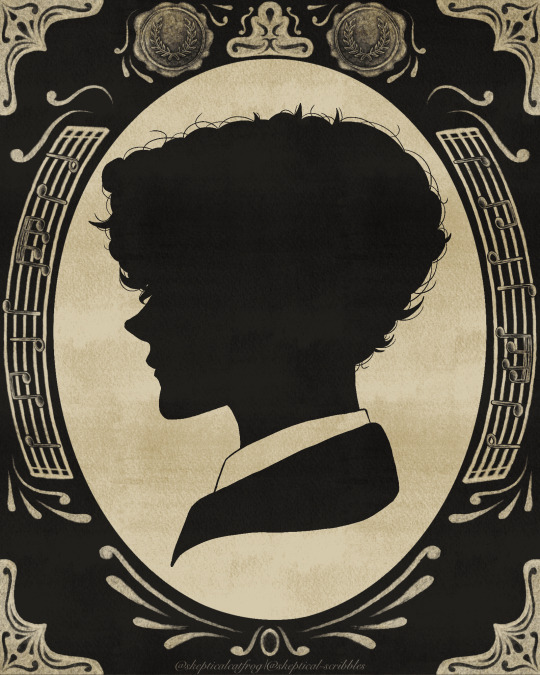
Crows Silhouette Portraits, Part 3/3: Wesper
Kanej Helnik
I will admit, these ones are my personal favorites! Probably partially because they're my favorite characters, so I am a little biased.
#six of crows#crooked kingdom#leigh bardugo#grishaverse#shadow and bone netflix#shadow and bone#shadow and bone s2#jesper fahey#soc jesper#jesper soc#wylan van eck#wylan hendriks#soc wylan#wylan soc#wesper#wylan x jesper#jesper x wylan#wesper fanart
629 notes
·
View notes
Text
The thing about this fandom is that almost everyone gets Wylan’s persona wrong. People will think he’s so innocent, and he is but in a deceptive way. He’s the kind of guy that will be held at gunpoint and being crying and/or begging for his life, the picture of vulnerability, before he throws a fucking flash bomb at you.
#wylan van eck#wylan soc#wylan hendriks#wylan van sunshine#soc#six of crows#soc fandom#six of crows fandom#wylan sab#sab#shadow and bone
1K notes
·
View notes
Text

#shadow and bone#six of crows#grishaverse#wylan van eck#wylan van sunshine#wylan hendriks#soc#shadow and bone s2#sab#wylan soc#poorly made memes strike back
624 notes
·
View notes
Conversation
Matthias: If you got arrested what would be the charges?
Inej: Theft.
Jesper: Disturbing the peace.
Nina: Aggravated assault.
Wylan: Arson.
Kaz: All of the above. In that order, probably.
#matthias helvar#matthias#matthias soc#inej ghafa#inej soc#inej#jesper fahey#jesper soc#jesper#nina zenik#nina soc#nina#wylan soc#wylan#wylan van eck#kaz brekker#kaz soc#kaz#six of crows#six of crows series#six of crows fandom#soc#soc series#soc fandom#incorrect six of crows quotes#incorrect six of crows#incorrect soc quotes#incorrect soc
2K notes
·
View notes
Text
Wylan: I'm having problems with a guy...
Kaz: Like his dead body won't fit into your trunk kind of problems, or you like him kind of problems?
#kaz can only help with one#nina however can help with both#soc incorrect quotes#soc#six of crows incorrect quotes#six of crows#crooked kingdom incorrect quotes#crooked kingdom#grishaverse incorrect quotes#grishaverse#soc wylan#wylan soc#wylan van eck#wylan hendriks#wylan van sunshine#soc kaz#kaz soc#kaz brekker#kaz rietveld#kaz dirtyhands brekker#the bastard of the barrel#dirtyhands#kazzle dazzle#implied wesper#you can tag as ship (not as kaz and wylan (i'm just making sure ok))
229 notes
·
View notes
Text
Me: ”Maybe my mental health isn’t that bad”
my favorite comfort characters through the years:






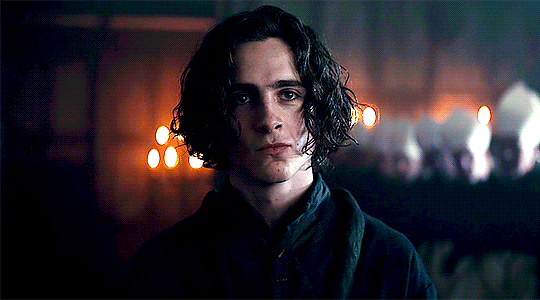
*Regulus Black
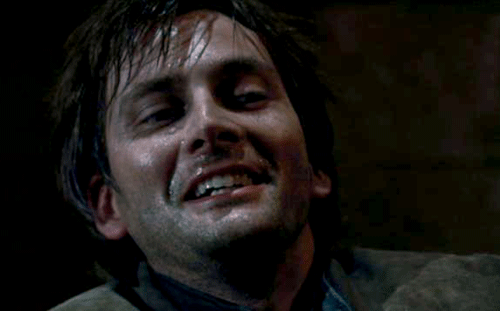
(Young version though)
#the marauders#mauraders#regulus black#remus lupin#Zuko#prince zuko#Many more book characters as well#atla#atla zu#atla zuko#five hargreeves#five umbrella academy#Hunter#hunter toh#The owl house#the owl house#wylan soc#wylan hendriks#jesper x wylan#wylan van eck#Jasper fahey#six of crows#crooked kingdom#marauders era#mental health#Help?#newt tmr#newt t#Barty crouch jr#Gay cartoons and fanfics ARE therapy Stfu
54 notes
·
View notes
Text

#wylan van eck#beyond excited!!!!#sab#shadow and bone#soc#six of crows#wylan soc#wylan van sunshine#its so great finally seeing my fav character ever onscreen and they did such a great job ugh#jack wolfe#the crows#wesper#shadow and bone netflix#mine
405 notes
·
View notes
Text
Something something Jesper turning a coin (a symbolic example of his struggle with gambling) into a key (a symbolic example of his love for Wylan).
#i am in my soft wesper feels on this monday afternoon#oh shit he speaks#jesper fahey#wylan van eck#shadow & bone#wesper#six of crows#six of crows wylan#six of crows jesper#jesper x wylan#wylan x jesper#wylan hendriks#soc jesper#soc wylan#shadow and bone#jesper soc#wylan soc#jesper six of crows#wylan six of crows#shadow and bone netflix#s&b#jesper fahey x wylan van eck#kaz brekker#inej ghafa#the crows#kanej#kit young#jack wolfe#freddy carter#amita suman
229 notes
·
View notes
Text

79 notes
·
View notes
Text
they are the same person
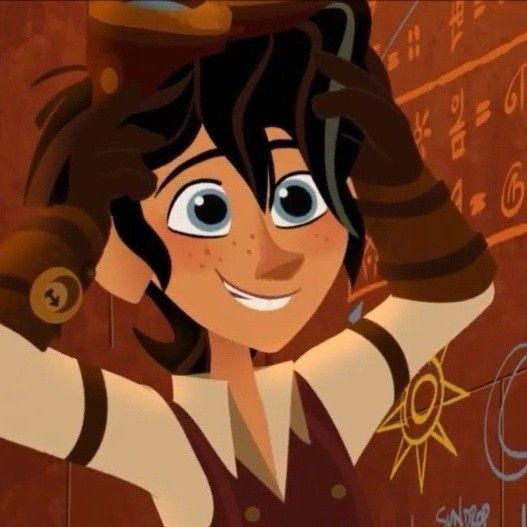







and this random collage that I found also fits for both of them!!

#i'm sleepy#six of crows#grishaverse#six of crows spin off#the crows#shadow and bone show#shadow and bone season 2#wylan hendriks#wylan my boy#wylan soc#wylan van eck#wylan supremacy#varian#rapunzels tangled adventure#tangled disney#tangled the series#rapunzles tangled adventure#tangled#tangled varian#varian tts
114 notes
·
View notes
Text
Kerch, Ghezenism, and the Van Eck Family
The title pretty much sums it up. This is a rather extensive analysis, and to be honest with you all it is 2,500+ words. So get into this absolute beast at your own risk!
~~~
From my experience in this fandom, I've seen it discussed very frequently how important religion is in the Grishaverse. Not only is it very deeply developed, to the point where many of the different countries have unique beliefs - which I'm not sure is seen very often in newer literature - but the various religious systems are also deeply important to many major characters, such as Matthias and Inej. However, one aspect of Grishaverse religions that seems to be overlooked somewhat often is the Kerch religion of Ghezenism. This may just be me, but I have a lot of thoughts on it. A big reason for that is that Wylan is, and always has been, my favorite character, and the culture surrounding Ghezen is actually a very important part of his character for many reasons. When you look into it in the way that I have, you discover that there are a lot of peculiar aspects of Ghezenism that make it stand out, as well as many ties that it has to major aspects of the story.
Right away, one thing that makes Kerch religion different from the others is how deeply connected to the economy it is. So much so that a lot of aspects of the two subjects are one and the same. Given that Ketterdam is a city largely fueled by commerce, it makes sense that Ghezenism would heavily tie into Kerch culture as well. Symbols of Ghezen can be found in many places throughout the city, even beyond the Church of Barter. A very good example of this is Vellgeluk, the island where the Crows meet Van Eck expecting to get their reward from the Ice Court heist: “Smugglers called it Vellgeluk, “good luck,” because of the paintings still visible around the base of what would have been the obelisk tower: golden circles meant to represent coins, symbols of favor from Ghezen, the god of industry and commerce,” (Six of Crows, Chapter 44). This just goes to show how many people in Ketterdam, and the wider country of Kerch as well, put their faith in Ghezen. Vellgeluk is a chosen place for smugglers to do business, specifically because favors of Ghezen are still present there.
Another interesting part of that passage is the fact that Ghezen is referred to as the god of industry and commerce. Kerch may have other gods, but as far as I can remember - and I may be wrong, but I don't think I am - we never hear about any of them. A similar situation can be found in Fjerda, where Djel is specifically the god of life, implying the existence of other gods. In Fjerda, it is very clear that Djel is mainly what they base their culture and belief system around. This makes perfect sense for a god of life, but isn't Ketterdam’s situation a bit more unusual? The most frequently discussed god, Ghezen, represents industry. We can assume Ghezen is the primary god within the Kerch religious system. Not to mention that their largest church is called the Church of Barter, barter obviously being a term that has much to do with economics. Ketterdam, if not the entire country of Kerch, seems to have no real concept of the separation of church and state. They quite literally hold auctions inside of the church; the auctioning of Kuwei is not a singular event.
The impacts of religion can also be seen in the culture and behavior of the people of Kerch, as seen in a brief section of Crooked Kingdom. “Kerch women—even the wealthy ones—didn’t bother with anything as frivolous as embroidery or needlepoint. Ghezen was better served by tasks that benefited the household,” (Crooked Kingdom, Chapter 14). Obviously, things like this are much more typical of religion. But I would argue that even this holds traces of the same values expressed by the connection between Ghezenism and the economy. It is specifically mentioned here that Kerch women are encouraged to participate in tasks that will “benefit the household”. This displays one of the very prominent aspects of the Ghezenite religion, which is that one of the most important things a person can do is be productive, and create a prosperous life for themselves and their family.
In addition to direct ties between Ghezenism and the Kerch economy, occasionally the legal system is put into the mix as well. While considering what consequences his father might face after the events of the auction, Wylan reveals this piece of information: “Knowingly entering into a false contract for the purpose of subverting the market wasn’t just illegal, it was considered blasphemy, a blight on the works of Ghezen, and the penalties were harsh,” (Crooked Kingdom, Chapter 41). Essentially what he means by this is that not only is tampering with the economy against the law, but it is also heavily frowned upon in a religious sense, and anyone who does so will face punishment from both sides. This is extremely unique, even within the Grishaverse. This single sentence also reveals another very interesting thing about Kerch society. The market, as it exists in Ketterdam, is believed to be a creation of god - it is referred to here as being a part of the “works of Ghezen”. That, more than anything, is concrete proof of just how interconnected the economy of Kerch is with its primary religion. This also means that committing a crime such as Van Eck did isn't simply illegal (which we can assume he has no issues with), it is also an act that goes against his own religion. But stop to consider for a moment: does he really have a problem with that either?
There are numerous examples throughout both books of Van Eck blatantly abusing the values of his own religion. On its own, the teachings of Ghezenism aren't inherently bad. After all, things such as tampering with the market for your own gain are actively discouraged using the threat of blasphemy, which I'd say is generally beneficial. The issue, however, arises when Van Eck in particular attempts to twist some of these values in order to justify his own actions. If there is one single quote from the duology that exemplifies this, it would be this one: “Ghezen shows his favor to those who are deserving, to those who build cities, not the rats who eat away at their foundations. He has blessed me and my dealings. You will perish, and I will prosper. That is Ghezen’s will,” (Six of Crows, Chapter 45). Van Eck openly believes that, since he is a member of the upper class, he is somehow more deserving of a blessing. He is insistent that “Ghezen's will”, or what he interprets as what Ghezen wishes for him to do, is to trample others in order to further his own success.
It doesn't matter to him who stands in his way, and it never will, because his goal is only to make himself more wealthy; he simply hides this behind a thin veil of piety. This motivation is especially clear when he is speaking to Inej while he is holding her captive. “When I leave this world, the greatest shipping empire ever known will remain, an engine of wealth, a tribute to Ghezen and a sign of his favor. Who will remember a girl like you, Miss Ghafa? What will you and Kaz Brekker leave behind but corpses to be burned on the Reaper’s Barge?” (Crooked Kingdom, Chapter 7). He frames people less fortunate than him - in this case Kaz and Inej - as forgettable and unimportant. The only thing he considers truly important is wealth, which he equates to power. He even references Ghezen here, claiming again that all of his actions, as well as his empire and legacy, are meant to show his dedication to his religion. He also claims that his ability to attain this level of success is a sign that Ghezen favors him. That in particular is a display of his extremely warped view of Ghezenism. The truth is that his success can only be attributed to his unethical actions, but the fact that he claims it is due to Ghezen's favor means that he will never be able to be convinced that he is wrong. He has what he believes to be an airtight justification.
His classism is also extremely evident, while indirectly, in an exchange between Kaz and Wylan earlier on in Crooked Kingdom. ““Your father much for charity?” “No. He tithes to Ghezen, but he says charity robs men of the chance at honest labor,”” (Crooked Kingdom, Chapter 2). This shows that Van Eck is very protective over his wealth. Which, quite frankly, is more likely than not the exact opposite of what Ghezenism is intended to promote. Based on what we are shown from an outside perspective, it seems as though one of the main aspects of Ghezenism is to create a prosperous economy for everyone. However, what Van Eck seems to believe is that he is intended to simply accumulate as much wealth as he possibly can, and keep it all for himself.
It is incredibly clear that Van Eck doesn't care about the well-being of anyone other than himself when it comes down to it. It could be argued that he cares for Alys, and will care for their child when it is born, but this simply cannot be proven. Just look at the exact mirror of this situation: Marya and Wylan. Wylan states about his parents, “I think he really loved her. They fought all the time, sometimes about me, but I remember them laughing a lot together too,” (Crooked Kingdom, Chapter 14). If we are to believe that this is true, and Van Eck truly did love Marya, that doesn't change the fact that he didn't hesitate to send her away as soon as he discovered that Wylan couldn't read or write. There is no evidence to say that he wouldn't do the same to Alys, under similar circumstances.
And, of course, this all leads back to the matter of Wylan. When Van Eck decided that Wylan wouldn't be useful to him, he stopped caring about him very quickly. Near the end of Six of Crows, we hear more of the specifics on Van Eck's opinion of Wylan. “I have hired the best tutors from every corner of the world. I’ve tried specialists, tonics, beatings, hypnotism. But he refused to be taught. I finally had to accept that Ghezen saw fit to curse me with a moron for a child. Wylan is a boy who will never grow to be a man. He is a disgrace to my house,” (Six of Crows, Chapter 45). Van Eck believes that Wylan is a curse from Ghezen, purely because he thinks that Wylan will be incapable of producing profits for their business. This is perhaps one of the most egregious examples of his blatant abuse of his own religion, because he is entirely willing to abandon and even murder his own son in order to fulfill his goals, which he claims is all Ghezen's will.
There is no feasible way Wylan would be able to grow up being raised by Van Eck, and not be affected by his religious ideas in some way. In fact, there is evidence contained in the text that proves this rather thoroughly. There are even certain things that have already been cited within this analysis that can be circled back to, such as the quote just above. This quote exemplifies the sort of treatment Wylan was subjected to while growing up. This is mostly speculation, but it's safe to assume he was told at a very young age that his own father considered him a punishment from god. That is objectively terrible, and we know that by the age of eight his father was his only parent. The psychological impacts that that would have on a child that young are unimaginable.
Additionally, we can return to this quote from Crooked Kingdom: “When I leave this world, the greatest shipping empire ever known will remain, an engine of wealth, a tribute to Ghezen and a sign of his favor. Who will remember a girl like you, Miss Ghafa? What will you and Kaz Brekker leave behind but corpses to be burned on the Reaper’s Barge?” (Crooked Kingdom, Chapter 7). While Van Eck is not talking to Wylan here, and Wylan isn't even present at the time, this passage still indirectly displays Van Eck's feelings about Wylan. Here he is expressing the fact that he maintains that if a person is not able to create wealth and prosperity for themselves, they are essentially useless. As we know from the previous example, he believes this of Wylan as well.
It is evident that Wylan was taught Ghezenite values from a young age. While examining the exterior of the Church of Barter, his thoughts include this: “He didn’t need to be able to read the words engraved over the arch. He’d heard his father repeat them countless times. Enjent, Voorhent, Almhent. Industry, Integrity, Prosperity,” (Crooked Kingdom, Chapter 31). This is confirmation that Van Eck frequently encouraged Wylan to think about these values, and it can be inferred that it likely wasn't in a particularly positive manner. Industry, integrity, and prosperity are clearly the three main ideals of this religion, and we can easily be led to the conclusion that Van Eck is certain his son is capable of none of them.
It is also suggested that Wylan may even associate his father's disapproval with religion subconsciously as well. A good example of this is in Crooked Kingdom, after Wylan is taken to the Church of Barter. “Van Eck shook his head. “Every time I think you cannot disappoint me further, you prove me wrong.” They were in a small chapel topped by a dome. The oil paintings on the wall featured battle scenes and piles of armaments,” (Crooked Kingdom, Chapter 31). While this is also simply meant to provide the reader with a description of the environment, the juxtaposition between the two halves of this passage cannot be an accident. What we can observe here is that after Van Eck once again expresses his ever-present disappointment with Wylan, emphasis is immediately put on the fact that they are in the church. This, along with the other passages listed, creates a clear link between Wylan's negative relationship with his father and the effects that their shared religion has had on it.
What I consider to be one of the most important quotes for this subject, despite also being the shortest one used, comes near the end of Six of Crows. After Wylan has played his role in foiling Van Eck's plan to trick the Crows, he says this: “Maybe you can pray to Ghezen for understanding, Father,” (Six of Crows, Chapter 45). This is sort of the first act of retribution that the reader sees from Wylan. He has just made his father look like a fool, and then he practically spits in his face by taking the thing that was used against him for so long - their religion - and using it against his father instead. Not only is this moment incredibly satisfying, it also marks the beginning of Wylan's growth as a character that eventually leads to him being able to stand up to his father in more ways.
Despite being arguably the least explored Grishaverse religion in online spaces, I find Ghezenism to be extremely interesting when it comes to the ways it ties into the themes of the story. It represents wider, more general themes found throughout the book, such as the idea that people often value their own success over the well-being of others, but it contains even more when examined under a closer lens. It opens the door to a completely new aspect of further analyzing the relationship between Wylan and his father, and introduces vital elements of in-depth characterization for both of them. The way Wylan and Van Eck each view the same religion is highly indicative of their individual values, and that is a very interesting thing to expand upon. It simply goes to show just how much thought went into creating both the culture of this world, and the characters who live within it.
#this is virtually just a huge monster of a brain dump#don't bully me too hard if some details are off guys#six of crows#crooked kingdom#leigh bardugo#grishaverse#shadow and bone netflix#shadow and bone#shadow and bone s2#wylan van eck#wylan hendriks#soc wylan#wylan soc#wesper#jan van eck#marya hendriks#alys van eck#ketterdam
197 notes
·
View notes
Text

Wylan
41 notes
·
View notes
Text
Jesper: Hey I'm getting in the shower. Wanna help me out?
Wylan: ...have you never taken a shower before?
#not that wylan is innocent#I can just see him getting confused#wesper#wylan soc#wylan van eck#wylan van sunshine#jesper fahey#wylan hendriks#soc#soc incorrect quotes#six of crows incorrect quotes#grishaverse incorrect quotes
149 notes
·
View notes
Text
I think often abt the way that Wylan is in s2 ep6
spoilers ahead obvs but like me when me and my bf are fighting and i miss him so much that I infodump to myself abt the symbiotic relationship that reminds me of us. (He's dying in the other room)
#shadow and bone spoilers#sab spoilers#wylan hendriks#wylan van eck#shadow and bone show#soc wylan#wylan soc#soc wesper#wesper#And yk what as someone with a flower language obsession and a bff woth a butterfly obsession I get it man I get it#Him and his little fantasy butterfly and flower#fun fact the names of the butterfly and flower are like rlly clpse to real ones but the genus is changed#that way its allowed to be new plants and animals instead of our boring ones#idk if this is common knowledge or not but me and my friend were talking abt it#bc cyan morphos dont exist and daryra's scientific name is datura innoxia not datura meloxia#Isnt that lovely?#Also datura flowers represent decietful charms bc of their poison#which is what happened with wylan#got so so excited to see it only to realize how much of a threat it was#I'm normal.
37 notes
·
View notes